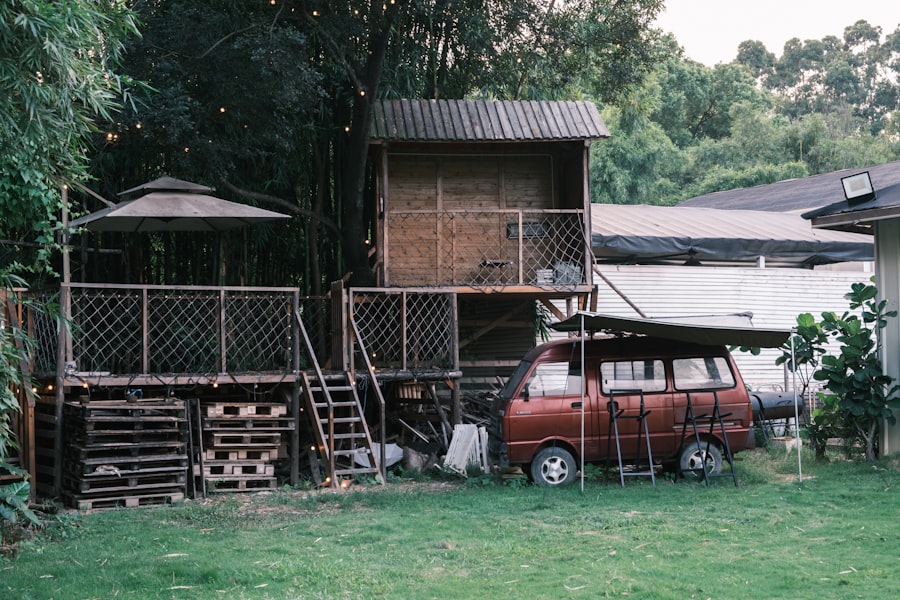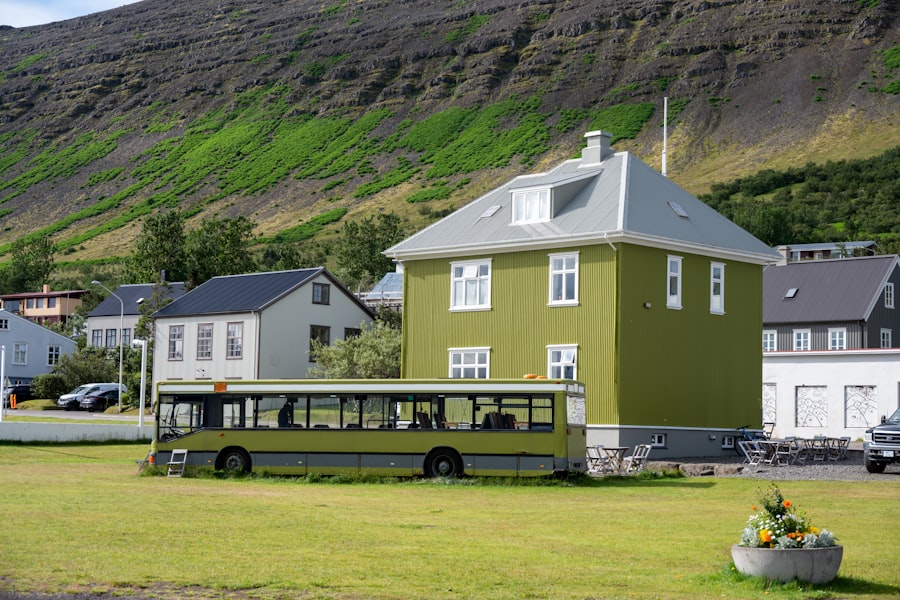Mobile houses, often referred to as manufactured or modular homes, offer a unique blend of flexibility and affordability that traditional homes may not provide. One of the most significant advantages is their cost-effectiveness. Generally, mobile houses are less expensive to purchase than conventional homes, making them an attractive option for first-time buyers or those looking to downsize.
The lower price point is often attributed to the streamlined manufacturing process, which allows for reduced labor costs and economies of scale. This affordability extends beyond the initial purchase; mobile houses typically incur lower property taxes and insurance costs, further enhancing their financial appeal. Another notable advantage of mobile houses is their mobility.
Unlike traditional homes, which are fixed in one location, mobile houses can be relocated with relative ease. This feature is particularly beneficial for individuals who may need to move frequently due to job changes or personal circumstances. The ability to transport a home allows for greater flexibility in lifestyle choices, enabling residents to explore different communities or regions without the hassle of selling a property.
Additionally, many mobile homes are designed with modern amenities and energy-efficient features, making them not only practical but also comfortable living spaces.
Key Takeaways
- Mobile houses offer flexibility, affordability, and ease of relocation.
- Key considerations before purchase include location, size, and legal regulations.
- Customization options allow owners to tailor mobile houses to their lifestyle.
- Owning a mobile house involves costs for maintenance, transportation, and site fees.
- Emerging trends focus on sustainability, smart technology, and innovative designs.
Factors to Consider Before Buying a Mobile House
Before diving into the purchase of a mobile house, several critical factors must be taken into account to ensure a wise investment. One of the foremost considerations is zoning regulations and land use restrictions in the desired area. Different municipalities have varying rules regarding where mobile homes can be placed, which can significantly impact the buying process.
Prospective buyers should research local zoning laws to determine if they can legally place a mobile house on their chosen plot of land or if they need to consider alternative options such as mobile home parks. Another essential factor is the condition and age of the mobile house. Older models may require more maintenance and repairs, which can lead to unexpected costs down the line.
Buyers should conduct thorough inspections to assess the structural integrity, plumbing, electrical systems, and overall condition of the home. Additionally, understanding the materials used in construction can provide insight into potential longevity and durability. Newer models often come with warranties and modern features that enhance energy efficiency and comfort, making them a more appealing choice for many buyers.
How to Find the Perfect Location for Your Mobile House

Finding the ideal location for a mobile house involves careful consideration of various elements that contribute to a desirable living environment. Accessibility is paramount; proximity to essential services such as grocery stores, healthcare facilities, schools, and public transportation can significantly enhance daily life. A location that offers convenience without sacrificing tranquility is often sought after by mobile homeowners.
Additionally, evaluating the neighborhood’s safety and community dynamics can provide insight into whether it aligns with one’s lifestyle preferences. Natural surroundings also play a crucial role in location selection. Many individuals are drawn to areas that offer scenic views, access to outdoor activities, or a sense of community with nature.
Proximity to parks, lakes, or hiking trails can enhance the quality of life for residents who value outdoor recreation. Furthermore, considering future developments in the area is essential; potential growth can lead to increased property values and improved amenities over time. Engaging with local real estate agents or community forums can provide valuable insights into emerging neighborhoods that may be ideal for placing a mobile house.
Tips for Customizing Your Mobile House to Suit Your Needs
| Tip | Description | Benefit | Estimated Time to Implement |
|---|---|---|---|
| Optimize Storage Solutions | Use multi-functional furniture and built-in storage compartments. | Maximizes space and reduces clutter. | 1-2 weeks |
| Customize Layout | Design floor plans that fit your lifestyle, such as open living areas or separate rooms. | Improves comfort and usability. | 2-4 weeks |
| Upgrade Insulation | Install high-quality insulation materials in walls and ceilings. | Enhances energy efficiency and temperature control. | 1 week |
| Install Solar Panels | Add solar panels to the roof for renewable energy. | Reduces energy costs and environmental impact. | 2-3 weeks |
| Personalize Interior Design | Choose colors, materials, and decor that reflect your style. | Creates a welcoming and personalized living space. | Ongoing |
| Enhance Lighting | Incorporate adjustable LED lighting and natural light sources. | Improves ambiance and energy efficiency. | 1 week |
| Upgrade Appliances | Select compact, energy-efficient appliances suited to your needs. | Increases convenience and reduces utility usage. | 1-2 weeks |
| Add Outdoor Living Space | Build a deck or awning to extend living areas outdoors. | Provides additional space for relaxation and entertainment. | 2-3 weeks |
Customizing a mobile house allows homeowners to create a living space that reflects their personal style and meets their specific needs. One effective way to begin this process is by focusing on the layout and design of the interior spaces. Many manufacturers offer customizable floor plans that allow buyers to choose room configurations, sizes, and placements.
For instance, individuals who work from home may prioritize an office space or a designated area for productivity, while families might require additional bedrooms or play areas for children. In addition to layout considerations, aesthetic choices such as color schemes, flooring materials, and fixtures can significantly impact the overall ambiance of a mobile house. Homeowners should consider incorporating energy-efficient appliances and sustainable materials into their designs to enhance both functionality and environmental responsibility.
Personal touches such as artwork, furniture arrangements, and landscaping can further transform a mobile house into a unique home that resonates with its inhabitants’ lifestyles and preferences.
The Cost of Owning and Maintaining a Mobile House
While mobile houses are often more affordable than traditional homes, it is essential to understand the ongoing costs associated with ownership and maintenance. Monthly expenses typically include mortgage payments (if applicable), property taxes, insurance premiums, and utility bills. Homeowners should budget for these recurring costs to ensure financial stability over time.
Additionally, maintenance expenses can vary based on the age and condition of the mobile house; older models may require more frequent repairs or updates. Regular upkeep is crucial for preserving the value of a mobile house. This includes routine inspections of plumbing systems, electrical wiring, roofing, and exterior siding.
Homeowners should also be proactive in addressing any issues that arise promptly to prevent more significant problems from developing. Investing in energy-efficient upgrades can lead to long-term savings on utility bills while enhancing comfort levels within the home. Overall, understanding these financial aspects is vital for anyone considering purchasing a mobile house.
The Process of Buying and Transporting a Mobile House

The process of buying and transporting a mobile house involves several key steps that require careful planning and execution. Initially, prospective buyers should conduct thorough research on manufacturers or dealers who specialize in mobile homes. It is advisable to visit showrooms or model homes to gain firsthand experience of different styles and layouts available in the market.
Once a suitable model is selected, buyers must negotiate pricing and financing options while ensuring they understand all terms associated with the purchase. After finalizing the purchase agreement, attention turns to transportation logistics. Transporting a mobile house requires specialized equipment and expertise due to its size and weight.
Buyers must coordinate with professional movers who are experienced in relocating mobile homes safely and efficiently. This process often involves obtaining necessary permits from local authorities to ensure compliance with regulations during transport. Once the home arrives at its new location, it will need to be properly set up on its foundation or lot, which may include connecting utilities such as water, electricity, and sewage systems.
The Environmental Benefits of Living in a Mobile House
Living in a mobile house can offer several environmental benefits that align with sustainable living practices. One significant advantage is the smaller footprint associated with these homes compared to traditional houses. Mobile houses typically occupy less land area, which can help preserve natural habitats and reduce urban sprawl.
This compact design not only minimizes land use but also encourages more efficient resource consumption. Moreover, many modern mobile houses are built with energy-efficient materials and technologies that reduce energy consumption over time. Features such as high-quality insulation, energy-efficient windows, and solar panel installations contribute to lower carbon footprints for residents.
By utilizing renewable energy sources and reducing reliance on fossil fuels, homeowners can significantly decrease their environmental impact while enjoying lower utility costs. Additionally, some manufacturers prioritize sustainable building practices by sourcing materials responsibly and minimizing waste during production.
The Future of Mobile Houses: Trends and Innovations
The future of mobile houses is poised for exciting developments driven by technological advancements and changing consumer preferences. One notable trend is the increasing integration of smart home technology into mobile houses. Homeowners are now able to control various aspects of their living environment through smart devices—ranging from lighting and heating systems to security features—enhancing convenience and energy efficiency.
Another innovation gaining traction is the use of sustainable building materials in the construction of mobile houses. As environmental awareness grows among consumers, manufacturers are responding by incorporating recycled materials and eco-friendly practices into their designs. This shift not only appeals to environmentally conscious buyers but also positions mobile houses as viable alternatives in an increasingly competitive housing market.
Furthermore, modular construction techniques are evolving rapidly, allowing for greater customization options while reducing construction timeframes significantly. This trend enables buyers to create personalized living spaces tailored to their needs without compromising on quality or efficiency. As these trends continue to develop, mobile houses are likely to become an increasingly popular choice for those seeking affordable housing solutions that align with modern lifestyles and values.



